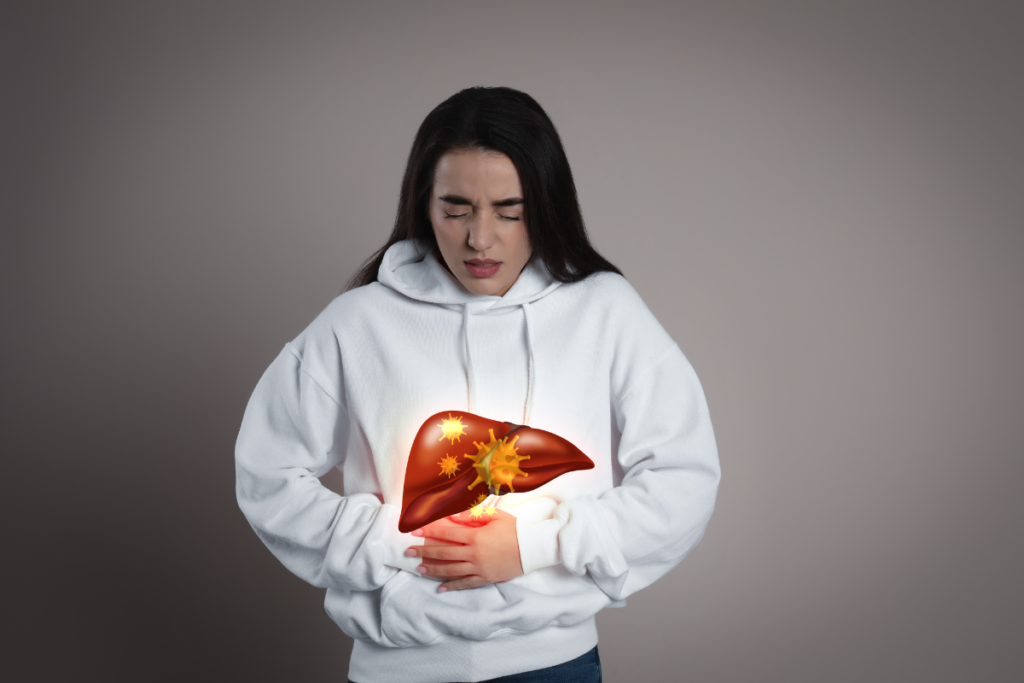One of the most prevalent liver diseases around the globe, fatty liver disease has become especially common in India. In the early stages, it shows no symptoms, which is why it is often referred to as a “silent condition.” However, if left unchecked, it can lead to more severe liver damage. This article will discuss its symptoms, causes, treatment options, and preventive measures to help protect your liver health.
What is Fatty Liver Disease?
Fatty liver disease results when fat builds up in the liver cells. It is broadly classified into two types:
1. Non-Alcoholic Fatty Liver Disease (NAFLD): This form occurs in people who drink little to no alcohol.
2. Alcoholic Fatty Liver Disease (AFLD): This type results from excessive alcohol consumption. NAFLD is the most common form in India, with increasing rates of obesity and metabolic diseases contributing to its rise.
Symptoms of Fatty Liver Disease:
In its early stages, fatty liver disease typically shows no symptoms. However, as the condition progresses, individuals may experience:
● Fatigue: Unexplained tiredness or weakness that doesn’t improve with rest.
● Abdominal Discomfort: A dull pain or fullness in the upper right side of the abdomen.
● Unexplained Weight Loss: Weight loss without any significant changes to diet or activity.
● Jaundice: Yellowing of the skin or eyes, which occurs in advanced cases of liver damage.
Causes and Risk Factors:
1. Obesity: Excess body weight is the leading cause of fatty liver disease, especially visceral fat around the abdomen.
2. Diabetes: High blood sugar and insulin resistance increase the chances of fat buildup in the liver.
3. High Cholesterol: Increased cholesterol levels are a risk factor for the accumulation of liver fat.
4. Alcohol Consumption: Alcoholic fatty liver disease results when you are a heavy drinker for many years.
Treatment Options:
1. Lifestyle Changes:
● Weight Loss: Lose 1-2 kg of weight per week to improve liver function and lower liver fat.
● Diet: Fatty liver can be controlled with a diet high in fibre, omega-3 fatty acids, and antioxidants—limit processed foods, too much sugar, and fat.
● Exercise: Regular physical activity, especially aerobic exercises, can help reduce liver fat.
2. Medications:
● If diabetes, hypertension, and high cholesterol are controlled well, then liver damage can be avoided, as there are no FDA-approved drugs specifically for fatty liver.
3. Monitoring:
●Regular liver function tests and imaging studies (such as ultrasound or MRI) can help monitor the progression of fatty liver disease.
FAQs:
Can GERD lead to cancer?
Yes, untreated GERD can increase the risk of oesophagal cancer due to chronic inflammation and damage to the oesophagus.
Is GERD curable?
GERD can be managed effectively with medications and lifestyle changes, but it may not always be fully curable, especially in severe cases.
Can I prevent GERD?
Maintain a healthy weight, avoid trigger foods, and manage stress to lower the chance of GERD, even though some risk factors, including genetics, are uncontrollable.
Disclaimer:
This information is meant for educational purposes and should not replace professional medical advice. Always consult your doctor for personalised recommendations.
How HealthPil Can Help:
HealthPil connects you with hepatology specialists who can assess your liver health and guide you through effective management and treatment options. Schedule your consultation today!

